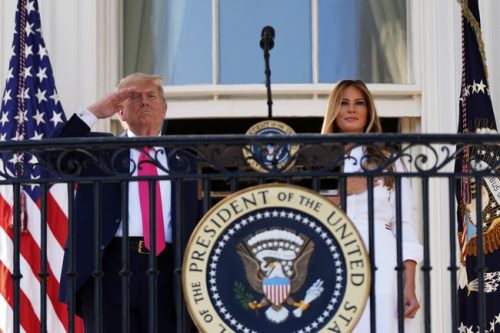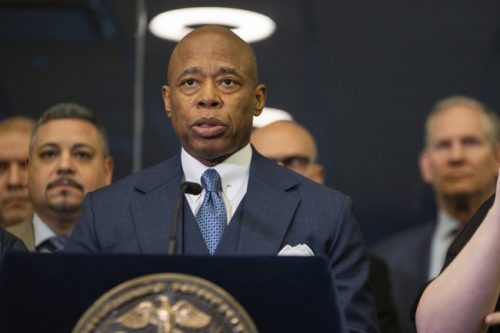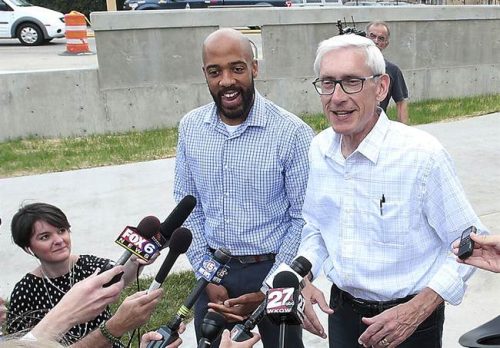Jen Psaki made remarks about Usha Vance that landed poorly, and Vice President JD Vance publicly pushed back while social media lit up. The exchange highlights how quick political figures can weaponize personal descriptions and how the media treats those moments differently depending on who’s involved. Voices from the right called Psaki’s words out as unfair and disrespectful, and the conversation jumped from a podcast clip to reporters overseas. This piece walks through the comments, the response, and why the reaction matters beyond the immediate flap.
Psaki’s comments came during a podcast appearance and suggested Usha Vance needed rescuing, a line that struck many as tone-deaf and condescending. Listeners reacted to the implication that a grown woman with a Yale law degree somehow needed saving from her husband. That framing read as both insulting and presumptuous, especially given the public profile and credentials of Mrs. Vance. The remark didn’t sit right with observers who expect more careful commentary from experienced political communicators.
Criticism moved fast when the clip circulated online, and the heat only rose when key figures weighed in. JD Vance answered directly to reporters while on a trip to Israel, calling the remarks “disgraceful” and affirming his wife’s agency. He pointed to the fact that Usha Vance speaks for herself and that he considers himself fortunate to have her support. His response framed the episode as a personal affront that touched on respect for privacy and family.
Jen Psaki says JD Vance in “scarier” than Donald Trump & suggests his wife Usha wants out of their marriage.
“Blink 4 times. Come over here. We’ll save you.”pic.twitter.com/aqgcyhlXZo
— Breaking911 (@Breaking911) October 21, 2025
Vice President JD Vance slammed former White House press secretary Jen Psaki’s “disgraceful” remarks implying that second lady Usha Vance is afraid of her husband.
“I think it’s disgraceful, but of course the second lady can speak for herself,” Vance told reporters in Israel on Thursday.
He remarked that he is “very lucky to have a wonderful wife” and that he was honored to have her by his side during his recent trip to Israel.
Others online made quick points about motive and tone, arguing this was less a commentary than a cheap political slam. The argument from critics was twofold: the remarks were disrespectful to Mrs. Vance and they revealed more about Psaki’s reflexes than about the Vances themselves. For many, the line crossed into a broader pattern where opponents are stripped of nuance and turned into caricatures. That leaves viewers and voters watching a personal life turned into political theatre.
Social media exploded with criticism of Psaki’s remarks as the clip of her podcast appearance went viral.
Trump’s communications director, accused Psaki of “transferring her own personal issues onto others” and said she “has to overcompensate for her lack of talent by saying untrue things.”
The episode also raised questions about gender and race in public commentary, with several critics pointing out the implication that Usha Vance is somehow helpless felt patronizing at best. Mrs. Vance’s professional background and public demeanor were cited as evidence she is fully capable of speaking and acting on her own behalf. Critics said the narrative of a “white savior” or an outside rescuer stepping in was both unnecessary and insulting. That response underscored how quickly political commentary can slide into personal judgment.
Some observers pointed out the double standard in how media outlets handle similar jabs depending on the partisan alignment of the target. If a spouse of a Democrat had been described in the same way, those same newsrooms might have treated the remark as a major scandal. That perceived inconsistency fed the frustration on the right, where conservatives argue the media selectively elevates or suppresses stories. The result is a cycle where trust erodes and every offhand comment becomes ammunition.
At bottom, this episode shows how a few careless words on a podcast can snowball into an international talking point and a debate about respect and media bias. Vance made his stance clear, supporters pushed back, and the clip guaranteed the exchange would be replayed and dissected. Whether it sticks in the long term is uncertain, but the incident illustrates how personal attacks are often repackaged as political critique. The larger takeaway is that commentators should think twice before making sweeping judgments about private lives.
One thing is clear: public life invites scrutiny, but that scrutiny should be fair and measured rather than reductive. Remarks about another person’s marriage or character deserve care, especially from those who built careers on public communication. When they don’t get that care, it opens the door to predictable backlash and entrenched partisan responses. In this case, the fallout was swift and loud, and it serves as a reminder that words still carry consequences.






